Ford Transit Transporter vs Nissan X-Trail – Which model is better for everyday use?
Compare performance, boot capacity, efficiency and price at a glance.
Find out which car is the better choice for you – Ford Transit Transporter or Nissan X-Trail?
Costs and Efficiency:
Price and efficiency are key factors when choosing a car – and this is often where the real differences emerge.
Nissan X-Trail has a to a small extent advantage in terms of price – it starts at 34000 £, while the Ford Transit Transporter costs 39900 £. That’s a price difference of around 5905 £.
Fuel consumption also shows a difference: Nissan X-Trail manages with 5.70 L and is therefore clearly perceptible more efficient than the Ford Transit Transporter with 7.90 L. The difference is about 2.20 L per 100 km.
Engine and Performance:
Power, torque and acceleration are the classic benchmarks for car enthusiasts – and here, some clear differences start to show.
When it comes to engine power, the Ford Transit Transporter has a clearly perceptible edge – offering 269 HP compared to 213 HP. That’s roughly 56 HP more horsepower.
In terms of top speed, the Nissan X-Trail performs noticeable better – reaching 200 km/h, while the Ford Transit Transporter tops out at 120 km/h. The difference is around 80 km/h.
There’s also a difference in torque: Nissan X-Trail pulls slightly stronger with 525 Nm compared to 430 Nm. That’s about 95 Nm difference.
Space and Everyday Use:
Beyond pure performance, interior space and usability matter most in daily life. This is where you see which car is more practical and versatile.
Seats: Nissan X-Trail offers a bit more seating capacity – 7 vs 6.
In curb weight, Nissan X-Trail is noticeable lighter – 1668 kg compared to 2074 kg. The difference is around 406 kg.
In maximum load capacity, the Ford Transit Transporter performs convincingly better – up to 14100 L, which is about 12676 L more than the Nissan X-Trail.
When it comes to payload, Ford Transit Transporter significantly takes the win – 2607 kg compared to 574 kg. That’s a difference of about 2033 kg.
Who wins the race?
The Ford Transit Transporter proves to be wins the duel decisively and therefore becomes our DriveDuel Champion!
Ford Transit Transporter is the better all-rounder in this comparison.

Ford Transit Transporter
Ford Transit Transporter
The Ford Transit Transporter has long been a staple in the commercial vehicle sector, renowned for its reliability and versatility. It offers a comfortable cabin with a modern design that enhances the driving experience, making long journeys more enjoyable. With a focus on practicality, the Transit provides ample cargo space, meeting the demands of businesses and individual users alike.
details @ media.ford.com
@ media.ford.com
 @ media.ford.com
@ media.ford.com
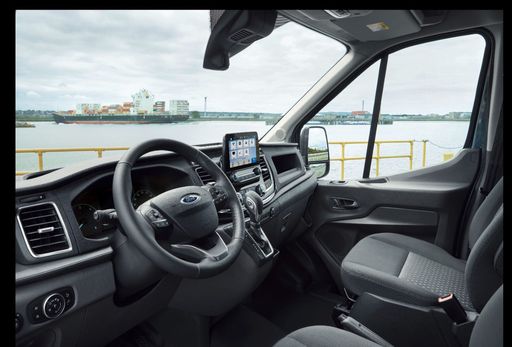 @ media.ford.com
@ media.ford.com
Nissan X-Trail
The Nissan X-Trail stands out with its spacious interior and practical design, making it an ideal choice for families and adventure enthusiasts alike. Its sleek exterior styling is complemented by modern technology features that enhance both driving pleasure and safety. This versatile SUV offers a comfortable ride, whether navigating city streets or exploring off-road paths, ensuring you travel in style and comfort.
details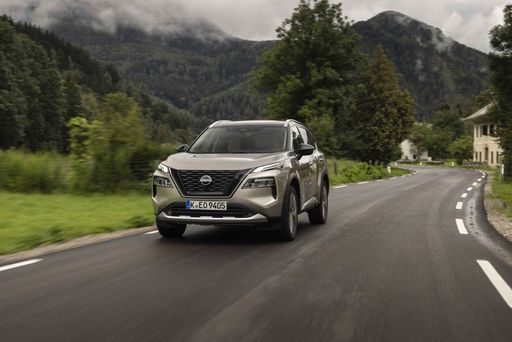 @ germany.nissannews.com
@ germany.nissannews.com
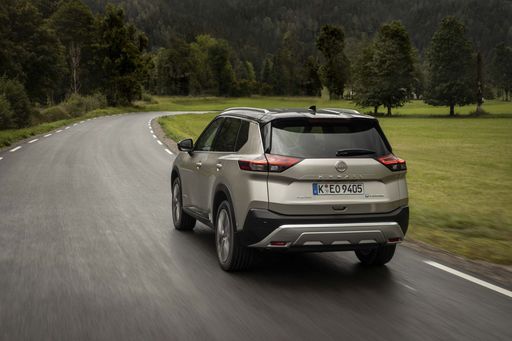 @ germany.nissannews.com
@ germany.nissannews.com
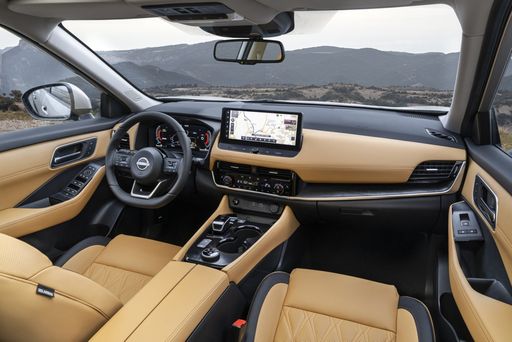 @ germany.nissannews.com
@ germany.nissannews.com
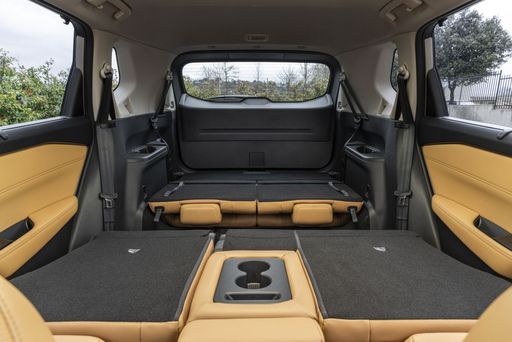 @ germany.nissannews.com
@ germany.nissannews.com

|

|
|
|
|
Costs and Consumption |
|
|---|---|
|
Price
39900 - 69100 £
|
Price
34000 - 50400 £
|
|
Consumption L/100km
7.9 - 10.3 L
|
Consumption L/100km
5.7 - 6.9 L
|
|
Consumption kWh/100km
21.3 - 32 kWh
|
Consumption kWh/100km
-
|
|
Electric Range
247 - 317 km
|
Electric Range
-
|
|
Battery Capacity
68 kWh
|
Battery Capacity
-
|
|
co2
0 - 270 g/km
|
co2
131 - 161 g/km
|
|
Fuel tank capacity
70 L
|
Fuel tank capacity
55 L
|
Dimensions and Body |
|
|---|---|
|
Body Type
Cargo Van
|
Body Type
SUV
|
|
Seats
3 - 6
|
Seats
5 - 7
|
|
Doors
4
|
Doors
5
|
|
Curb weight
2074 - 2765 kg
|
Curb weight
1668 - 1961 kg
|
|
Trunk capacity
-
|
Trunk capacity
177 - 585 L
|
|
Length
5531 - 6704 mm
|
Length
4680 mm
|
|
Width
2059 mm
|
Width
1840 mm
|
|
Height
2530 - 2778 mm
|
Height
1720 mm
|
|
Max trunk capacity
9300 - 14100 L
|
Max trunk capacity
1396 - 1424 L
|
|
Payload
735 - 2607 kg
|
Payload
432 - 574 kg
|
Engine and Performance |
|
|---|---|
|
Engine Type
Diesel, Electric
|
Engine Type
Petrol MHEV, Full Hybrid
|
|
Transmission
Manuel, Automatic
|
Transmission
Automatic
|
|
Transmission Detail
Manual Gearbox, Automatic Gearbox, Reduction Gearbox
|
Transmission Detail
CVT, Reduction Gearbox
|
|
Drive Type
Front-Wheel Drive, Rear-Wheel Drive, All-Wheel Drive
|
Drive Type
Front-Wheel Drive, All-Wheel Drive
|
|
Power HP
105 - 269 HP
|
Power HP
163 - 213 HP
|
|
Acceleration 0-100km/h
-
|
Acceleration 0-100km/h
7 - 9.6 s
|
|
Max Speed
120 km/h
|
Max Speed
170 - 200 km/h
|
|
Torque
310 - 430 Nm
|
Torque
300 - 525 Nm
|
|
Number of Cylinders
4
|
Number of Cylinders
3
|
|
Power kW
77 - 198 kW
|
Power kW
120 - 157 kW
|
|
Engine capacity
1996 cm3
|
Engine capacity
1497 cm3
|
General |
|
|---|---|
|
Model Year
2019 - 2024
|
Model Year
2024
|
|
CO2 Efficiency Class
G, A
|
CO2 Efficiency Class
F, D, E
|
|
Brand
Ford
|
Brand
Nissan
|
What drivetrain options does the Ford Transit Transporter have?
Available configurations include Front-Wheel Drive, Rear-Wheel Drive or All-Wheel Drive.
The prices and data displayed are estimates based on German list prices and may vary by country. This information is not legally binding.
